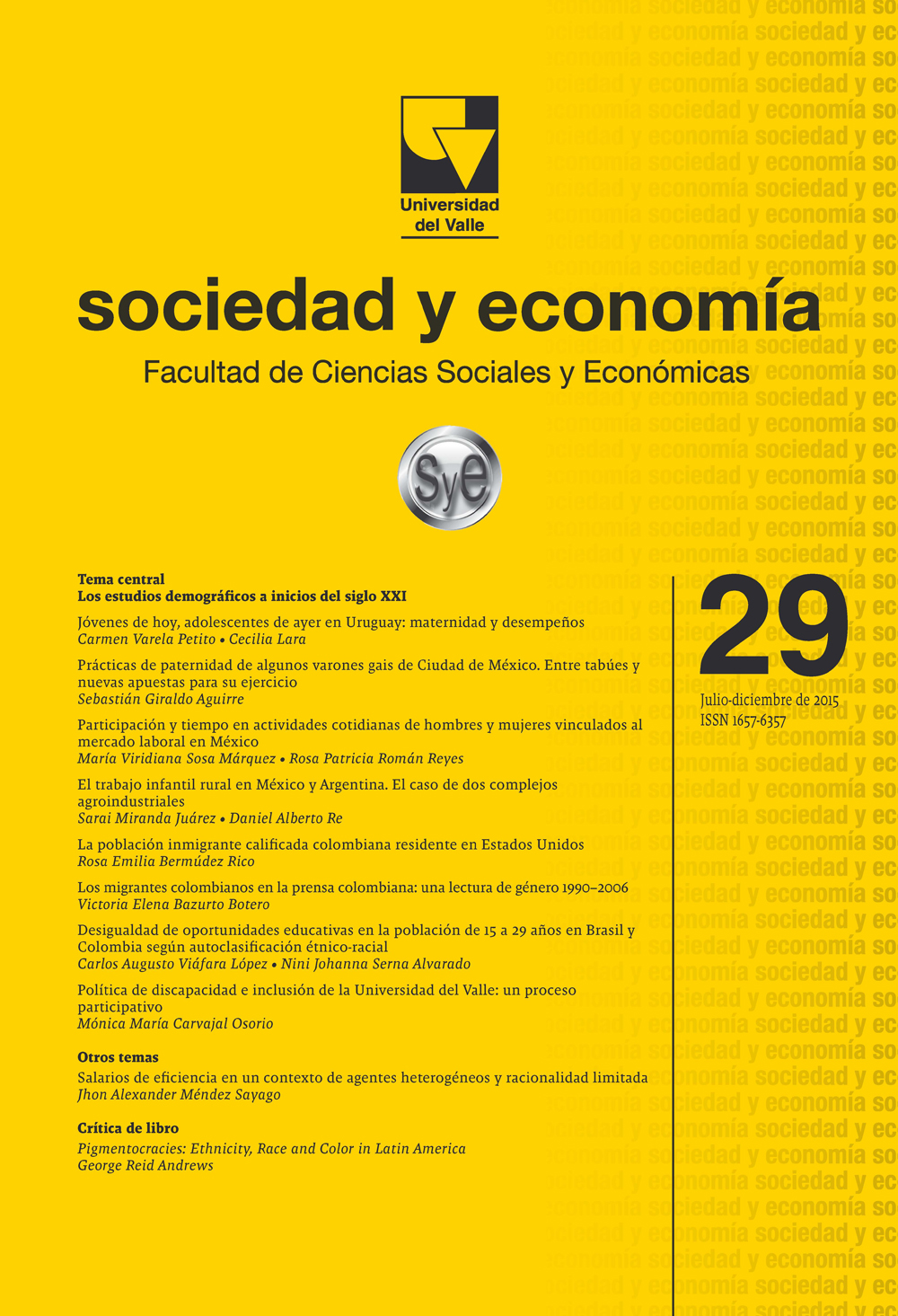Efficiency Wages in a Context of Heterogeneous Agents and Bounded Rationality
Keywords:
efficiency wages, bounded rationality, genetic algorithms.Main Article Content
This paper simulates an artificial labor market using genetic algorithms, with the purpose of determining in a context of efficiency wages and bounded rationality, the effects of heterogeneity of firms and workers about the dynamics of wages and employment. It is concluded that the heterogeneity in the qualification of workers, or their perception of the reference wage, forces firms to compete offering higher salaries, especially when the economy is subject to the minimum wage regime. In the market for less skilled workers, in absence of minimum wage there is no stable equilibrium, because the inductive learning can lead firms to choose between two different strategies salary.
Downloads
Revista sociedad y economía editada por la Facultad de Ciencias Sociales y Económicas de la Universidad del Valle se encuentra bajo una Licencia Internacional Creative Commons Atribución - No comercial 4.0
Basada en una obra en http://sociedadyeconomia.univalle.edu.co

